Rich Dad Poor Dad is a personal finance book written by Robert Kiyosaki back in 1997. Since its release, it has sold more than 26 million copies. It recounts Robert’s upbringing in Hawaii with two different Dads: his biological “poor dad” and his great friend’s “rich” dad. The book covers some great lessons he learned as a child by juxtiposing the advice he received from both of his “Dads”.
Book Review – Rich Dad Poor Dad – What I Loved About the Book
I really enjoyed the first section of the book that covered Robert’s childhood. There were plenty of great examples where he covered different lessons that his rich dad taught him. My favorite was when he was working in his rich Dad’s grocery store and ended up taking the unsold comic books. He and his friend setup a comic book “library” and charged their friends an entrance fee to read the comic books for 4- hours. He found this to be much more lucrative than the $0.10 an hour his Rich Dad was paying him.
The other key concept that Robert got across in this section of Rich Dad Poor Dad was to stop yourself from saying: “I can’t afford that.” In Robert’s words, this shuts down the brain and prevents you from really expanding into new opportunities. Instead, if you say to yourself: “how can I afford this?”, it gets your brain working and you will often find a solution if you’re willing to word hard enough to get it.
All in all, I really felt like I was there along with Robert and his Rich dad for many of the stories from his childhood. They were great and really entertaining.
Book Review – Rich Dad Poor Dad – What I Hated About the Book
The later sections of Rich Dad Poor Dad recount more of Roberts philosophy that he’s lived his life by. These sections of the book are filled with plenty of thoughts and opinions, but light on actual details on how one could implement the ideas in one’s own life. I did not really enjoy this section of the book for two reasons. As I already mentioned, this second half acts more like a motivational book than a “how to” book. I feel that most readers would not really find this terribly helpful.
Also, he gets more into his philosophy about taking high risk, high reward types of chances to get ahead financially. I felt overall that this is very bad advice for most people. True, you may not get super-rich by taking a more steady and balanced approach to investing and planning, but you’re also mostly sure that you aren’t going to lose everything. I feel that Robert’s balls-to-the-wall advice could be quite damaging to most people that are inclined to “bet the farm on red” (to use a gambling analogy).
Book Review – Rich Dad Poor Dad – Rating
3/5 Stars – You may want to pass this one over unless you’ve read just about every other financial book out there.
Book Review – Rich Dad Poor Dad – Final Thoughts
Overall, I thought Rich Dad Poor Dad was merely just OK. The biggest take-away that I had was to not get in the mode of saying “I can’t afford that,” but to trick your mind into saying: “how can I afford this?” I think that this advice/trick will serve me well in the future.
However, I think most of the advice in this book is generally pretty bad. I wouldn’t recommend this book over more practical personal finance books that give you more hands on financial advice like: I Will Teach You to Be Rich. I’d place Rich Dad Poor Dad further down on your financial reading list if I were you.

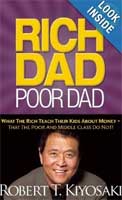
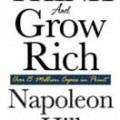
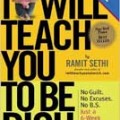
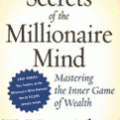
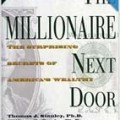




I would agree that I really enjoy his stories about interactions with his rich dad versus his poor dad. You make an excellent point though that the book is somewhat light on details on how to implement the strategies that he recommends. However, I still like the book because I think it highlights an essential point about the way that beliefs about money shape our habits and our balance sheet. It can be a great motivational read.
Dee @ Color Me Frugal recently posted…12 Free or Cheap Ways to Get Exercise in the Winter
Dee,
Thanks for stopping by again! Yeah, I guess I’d give it a 3/5 stars. It was good, but not great in my opinion 🙂
The more I read about Rich Dad / Poor Dad, the less I feel the need to read it. Apparently the guy has made quite a bit of money off the book and public speaking though….
Brock @cleverdude recently posted…What’s Your Most Inexpensive Meal?
Brock,
Yeah, I’d pass unless you don’t have anything else better to read. The value for your time is pretty low with this one 🙂
This is the book that started it all for me back when I was about 13-14 years old. I remember reading about the cash flow quadrant and immediately started teaching myself how to build a website cause I knew that would be the future.
Cool review dude, but I would have rated it higher.
Matthew Neer recently posted…Top 200 Best Inspirational Quotes Of All Time
Matthew,
Thanks for stopping by. I think you’re right in that it would be a good book to read at that age. For me at the age of 32, with several finance books under my belt, it was interesting, but not super helpful.
That’s cool that you were able to see the net would be the next big thing at such a young age! Congrats on that!
In my opinion this is arguably one the most overrated books out there. Kiyosaki doesn’t seem all the way genuine to me.
Jason B recently posted…5 Ways To Help Build Credit
Jason,
Finally – someone that agrees with me 🙂 I agree with you on the genuine factor. If you check out his wikipedia article, it makes you cringe a bit.
Thanks for stopping by!!
This book is too much abstract for me. The message is clear, but very hard to incorporate into real life. Honestly, just collecting real estate or buying stocks won’t make everyone millionaire – there is more to it. We would have been all rich if it was that easy.
For those who would like more specific info about wealth creation, I recommend reading:
http://www.amazon.com/dp/0984358102/
http://www.amazon.com/dp/1591845610
http://www.amazon.com/dp/B00KPH0KSU
Mark,
I agree 100% 🙂